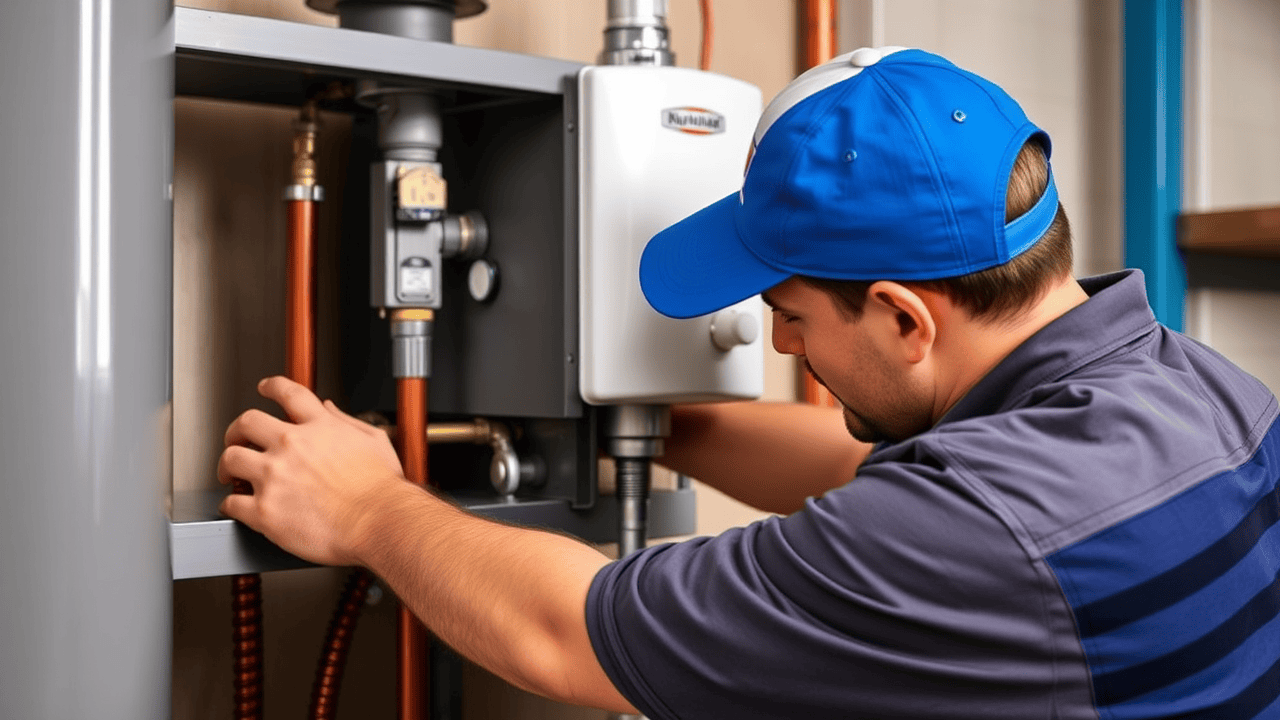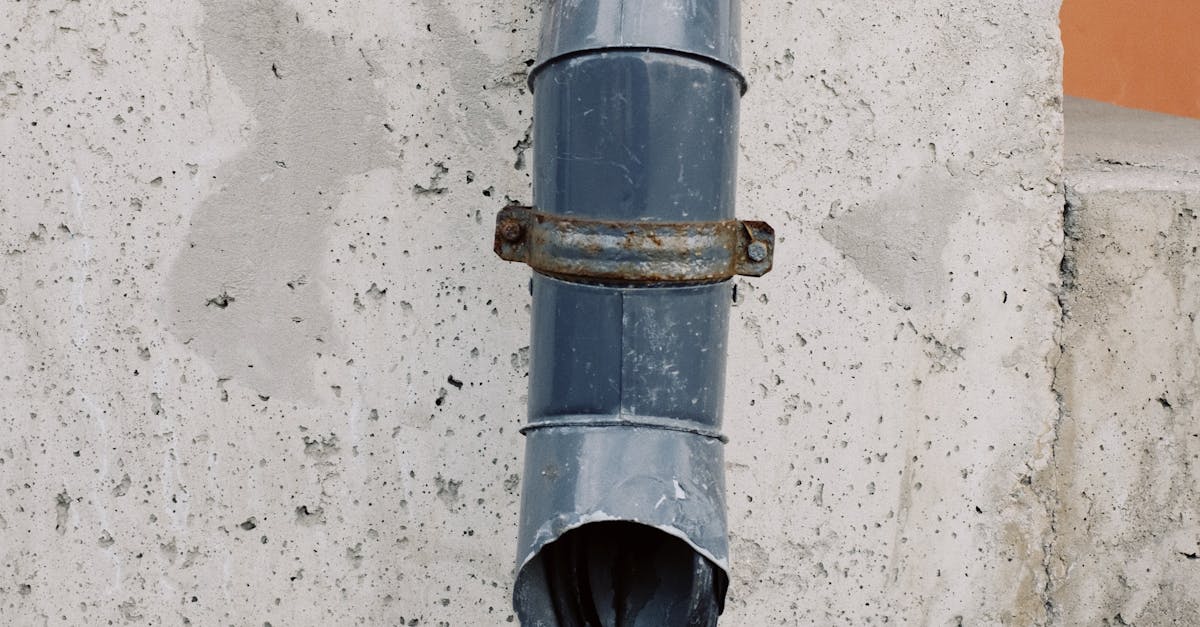
Permits and Regulations for Installation
Before starting any installation of a water heater, homeowners must be aware of the necessary permits and regulations. In many areas, including Oregon, local governments require permits to ensure that the installation meets safety and building standards. These permits serve as a guideline for compliance, helping to protect both the property owner and the surrounding community. Familiarity with these regulations is essential to avoid costly fines or potential hazards caused by improper installation.
Particularly in Oregon, specific rules can vary by city or county, emphasizing the importance of checking local codes before initiating the project. Water heater installation and repair Oregon may involve specific restrictions on the type of unit that can be installed or where it can be located. Homeowners should consult with local building departments or certified professionals to confirm the requirements for their area. Knowing these regulations not only streamlines the installation process but also ensures that the work conducted meets all safety standards.
Importance of Local Codes
Local building codes play a crucial role in the water heater replacement process. Each municipality establishes its own regulations to ensure that installations meet safety and efficiency standards. Ignoring these guidelines can lead to unsafe conditions and potential fines, making it essential for homeowners to familiarize themselves with the specific requirements in their area. In cities like Eugene, Oregon, homeowners must comply with local codes to ensure proper installation and avoid any complications down the line.
The importance of adhering to local codes extends beyond compliance; it impacts overall system performance. Local regulations often dictate the types of materials and technologies permitted for use, which can influence the efficiency and longevity of the water heater. For instance, in Eugene, Oregon, understanding the local requirements can help homeowners choose the right system for their needs while ensuring that their investment is protected during the installation process.
Estimated Time for Replacement Process
The estimated time for replacing a home water heater typically ranges from a few hours to a full day. Factors affecting this timeline include the type of water heater being installed, whether it is a straightforward replacement or if modifications to plumbing or electrical systems are needed. For instance, switching from a traditional tank model to a tankless system often requires more time to ensure proper venting and connections. Homeowners should also account for additional time if permits or inspections are necessary according to local regulations.
Water heater installation and repair Oregon can vary based on the contractor’s experience and availability. A seasoned professional may complete the job more quickly due to familiarity with the local codes and installation specifics. If unexpected issues arise, such as outdated plumbing or structural complications, this could extend the process further. Understanding these factors can help homeowners prepare adequately for the installation timeline.
Breakdown of Time Required
The breakdown of time required to replace a home water heater can vary based on several factors. Typically, the actual installation process takes about two to four hours for a straightforward replacement. This includes disconnecting the old unit, making necessary adjustments, and installing the new appliance. Additional time may be needed if there are complications, such as unexpected plumbing issues or the need to upgrade to a different type of water heater.
In areas like Oregon, it’s crucial to consider local regulations and permits which may add to the overall time. Ensuring compliance with codes can slow down the process, especially if inspections are required. Homeowners should also factor in the time it takes for any required parts to be delivered, as these delays can extend the total time for water heater installation and repair in Oregon beyond the initial installation hours.
Impact of Weather Conditions
Weather conditions can significantly influence the timeline for water heater installation or repair. For instance, during winter months, colder temperatures may impede the work process, requiring additional precautions and time to ensure proper installation. Rain and snow can create hazardous working conditions, leading to delays as professionals navigate the elements while completing the job.
In contrast, warmer months typically allow for a smoother experience, where conditions are more conducive to efficient installation. Homeowners in regions like Oregon may find that seasonal variations impact scheduling. Water heater installation and repair Oregon professionals may be busier during specific months, which can also affect the availability of appointments and the overall duration of the installation process.
Seasonal Considerations
Seasonal changes can significantly impact the water heater replacement process. During colder months, certain installations may take longer due to the need for additional precautions against low temperatures. Many plumbing professionals must work more carefully to prevent issues such as freezing pipes or delays in material availability, which can result in extended timelines.
In contrast, warmer seasons often afford easier access to outdoor installations and a more conducive environment for plumbers to work efficiently. However, peak installation times in spring and summer may lead to scheduling challenges, as more homeowners seek replacements after the winter's wear and tear. For those in need of assistance, water heater installation and repair Eugene, Oregon, can provide timely service tailored to seasonal demands.
FAQS
How long does it typically take to replace a home water heater?
The typical time to replace a home water heater ranges from 2 to 6 hours, depending on various factors such as the type of water heater and the complexity of the installation.
Do I need a permit to replace my water heater?
Yes, in many areas, a permit is required to replace a water heater. It's important to check local codes and regulations before proceeding with the installation.
What factors can affect the time it takes to replace a water heater?
Factors that can affect the replacement time include the type of water heater being installed, the condition of existing plumbing and electrical systems, and any necessary permits or inspections.
Can weather conditions delay the replacement of a water heater?
Yes, extreme weather conditions, such as heavy rain or snow, can potentially delay the replacement process, especially if outdoor work is required or access to the home is hindered.
Is it possible to replace a water heater myself, and how does that affect the time?
While it is possible to replace a water heater yourself, it may take longer if you are not experienced. Hiring a professional can ensure the job is done efficiently and in compliance with local codes.


